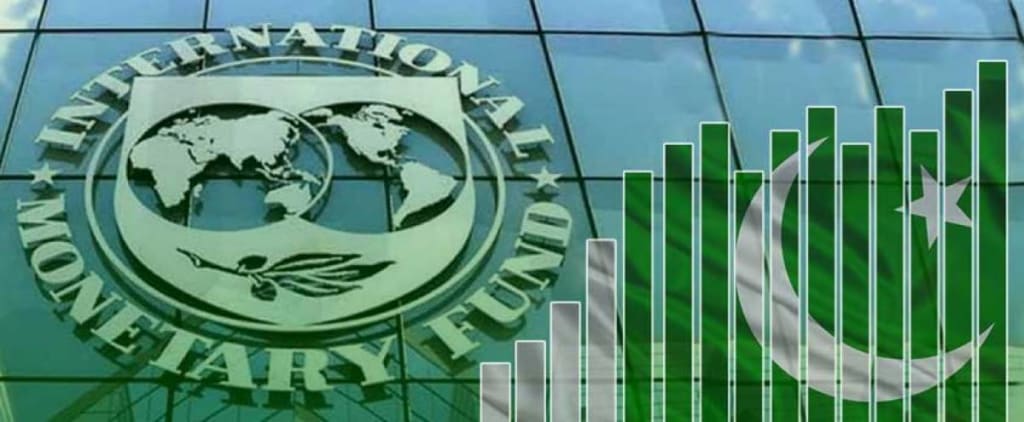IMF and The Islamic Republic of Pakistan
A brief but informative article on the relation of Pakistan and imf

Pakistan is a developing country in South Asia, with a population of over 220 million people. Despite having a vast natural resource base and a strategic location, Pakistan has faced significant economic challenges over the years. In recent years, the country has received several financial assistance packages from the International Monetary Fund (IMF) to address these challenges. In this article, we will explore the relationship between Pakistan and the IMF and examine the impact of IMF programs on the Pakistani economy.
History of Pakistan-IMF relations:
Pakistan became a member of the IMF in 1950, and since then, it has had several interactions with the IMF. Pakistan has received financial assistance from the IMF on several occasions over the years, primarily to address balance of payments (BOP) issues. The first IMF loan to Pakistan was in 1958, and since then, the country has received several loans from the IMF.
In 1988, Pakistan signed its first Stand-By Arrangement (SBA) with the IMF. An SBA is a financial assistance package that provides a country with short-term financing to address BOP issues. Since then, Pakistan has had several SBAs with the IMF. The most recent one was in 2019 when Pakistan signed a three-year, $6 billion Extended Fund Facility (EFF) with the IMF.
IMF programs and their impact on the Pakistani economy:
The IMF programs have had a significant impact on the Pakistani economy. The programs are designed to address the structural imbalances in the economy and promote economic growth. However, the programs are often accompanied by structural reforms that are necessary for the long-term sustainability of the economy.
The first IMF program in Pakistan was in the late 1980s, and it was aimed at addressing the BOP crisis that the country was facing at the time. The program included several measures to stabilize the economy, including devaluation of the currency, reduction of subsidies, and increased taxation. While these measures helped stabilize the economy, they also led to inflation and a decline in living standards for many Pakistanis.
The most recent IMF program in Pakistan began in 2019 and is still ongoing. The program includes several measures to stabilize the economy and promote growth. These measures include fiscal consolidation, tax reforms, and structural reforms in the energy sector. The program has also led to an increase in interest rates, which has resulted in a decline in private sector credit.
The IMF programs have had both positive and negative impacts on the Pakistani economy. On the positive side, the programs have helped stabilize the economy, reduce the fiscal deficit, and improve the BOP situation. However, the programs have also led to inflation, a decline in living standards, and social unrest.
Criticism of IMF programs in Pakistan:
The IMF programs in Pakistan have been criticized by some for their negative impact on the economy and society. Critics argue that the programs have led to inflation, a decline in living standards, and social unrest. They also argue that the IMF programs have been too focused on short-term stabilization and have ignored the long-term structural reforms that are necessary for sustainable growth.
Critics also argue that the IMF programs have been too harsh on Pakistan and have imposed unnecessary conditions on the country. For example, the IMF programs have often required Pakistan to reduce subsidies on essential goods and services, which has led to a decline in living standards for many Pakistanis.
Conclusion:
Pakistan has had a long-standing relationship with the IMF, and the IMF programs have had a significant impact on the Pakistani economy. While the programs have helped stabilize the economy and improve the BOP situation, they have also led to inflation, a decline in living standards, and social unrest. Critics argue that the IMF programs have been too focused on short-term stabilization and have ignored the long-term structural reforms that are necessary for sustainable growth.
About the Creator
Abli
"People write because no one listens"
Enjoyed the story? Support the Creator.
Subscribe for free to receive all their stories in your feed. You could also pledge your support or give them a one-off tip, letting them know you appreciate their work.






Comments
There are no comments for this story
Be the first to respond and start the conversation.